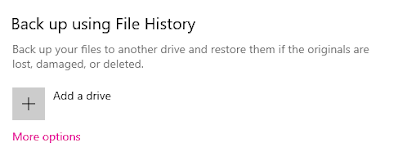Recover overwritten files
Recovering overwritten files can be a challenging task, as overwritten data is often difficult to retrieve completely. When a file is overwritten, the new data replaces the old data in the same location on the storage medium. Here are some steps you can take to attempt file recovery after overwriting, but keep in mind that success is not guaranteed:
- Stop Using the Drive: As soon as you realize that you've overwritten a file, stop using the drive or storage device immediately. Continued use can increase the chances of permanent data loss because new data may overwrite the old data more extensively.
- Check Backup: If you have a backup of the overwritten file, this is the easiest and most reliable way to recover it. Always maintain regular backups of important data to avoid such situations.
- Use File Recovery Software: You can try file recovery software like Recuva, MiniTool Power Data Recovery, or EaseUS Data Recovery Wizard. While these tools are primarily designed for recovering deleted files, they might be able to recover previous versions of files in some cases.
- Install the file recovery software on a different drive to avoid overwriting the data you want to recover.
- Follow the software's instructions for scanning the drive where the file was overwritten.
- Look for the file in the list of recovered files. It might be listed as a previous version or with a different filename.
- Keep in mind that the success of this method depends on various factors, including how much the file was overwritten and the type of file system in use.
- Professional Data Recovery Services: If the overwritten data is critical and you can't recover it using software, consider contacting a professional data recovery service. These services have specialized equipment and expertise to recover data from damaged or overwritten storage devices. However, they can be expensive.
- Prevent Future Overwriting: To prevent accidental overwriting of important files in the future, consider using version control software or regularly backing up your data. Version control tools like Git are useful for tracking changes in code and documents, and cloud-based storage services often offer versioning options.
.jpeg)


